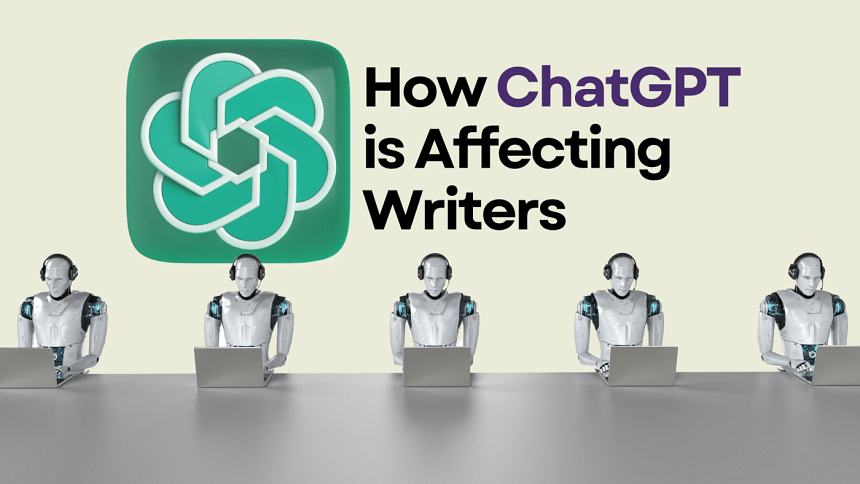How ChatGPT is affecting writers

The paradigm shift brought about by AI and its ability to perform tasks that, at least so far, no one had expected it to be able to do has raised many discussions among experts. When it comes to providing services such as writing, ChatGPT with its Large Learning Model (LLM) has been able to use gigantic amounts of data to learn how to write prose that is both smartly constructed and content-filled. Writers are now left hanging in confusion, worried about future career prospects being overtaken by a machine.
Or at least, so the narrative appears from an outside perspective. The truth is, the situation is far more a hodgepodge of reactions, some remain fearful while others seem excited with this new tool at their disposal. Numerous arguments arise from numerous points of view, and it is quite impossible to describe every facet of it. But what is important is to distil these arguments down in order to realise that the introduction of ChatGPT will completely reshape how writing as a service is provided.
For any sort of content writing that relies primarily on pre-existing information being repackaged, the situation looks at least slightly dire. ChatGPT merely serves as the next step in the evolution of AI that is already adept at handling pre-existing information. Its programming allows it to put together intelligent-sounding sentences, which always follow factual information. All of this is incredibly helpful to anyone looking for easily managed content and can be incredibly detrimental to many content writers looking for work across the globe.
For copywriters, too, there is a chance that ChatGPT can effectively take over a large amount of their work. Since both content writing and copywriting are fields that rely on previously established methods and pre-existing information, it is easy for AI to adapt to it and effectively take over thousands of jobs, and that is a genuine source of concern that has been explored in numerous aspects by experts. But it also raises the question of where the limitations of ChatGPT lie. And this is where we find another group of writers who seem to be rather excited instead of afraid.
While ChatGPT does seem to be taking over various sectors of the industry, it's important to remember that the boom of AI does not mean the death of human employment, AI's rise may be described as the rise of a new form of intelligence, one that works in tandem with human intelligence. But there is no real way for AI at its current state to actually take over fully, as human intelligence relies on lived human experiences and emotions, all of which allow us to think things with certain levels of creativity AI cannot (currently) replicate.
ChatGPT also struggles to deduce certain ideas based on common sense that are very innate among humans. Therefore, creative writers seem to be rather excited to be able to test out the limitations of this tool and how ChatGPT may be used for their writing work.
At the end of the day, it's clear that any field of writing that celebrates creative output will always favor human writing – current AI simply cannot compete. Sure, ChatGPT can write clever-sounding poetry and prose, but there is more to writing than simply stringing together words intelligently. No matter what sector we may be talking about, writing is inherently a human act and the creativity associated with it will always mark it as such.
Raian is looking forward to the day his back won't be hurting, but he knows that he shouldn't entertain fantasies. Reach out to him and tell him to get a massage at IG: @raian_is_burning

 For all latest news, follow The Daily Star's Google News channel.
For all latest news, follow The Daily Star's Google News channel. 







Comments